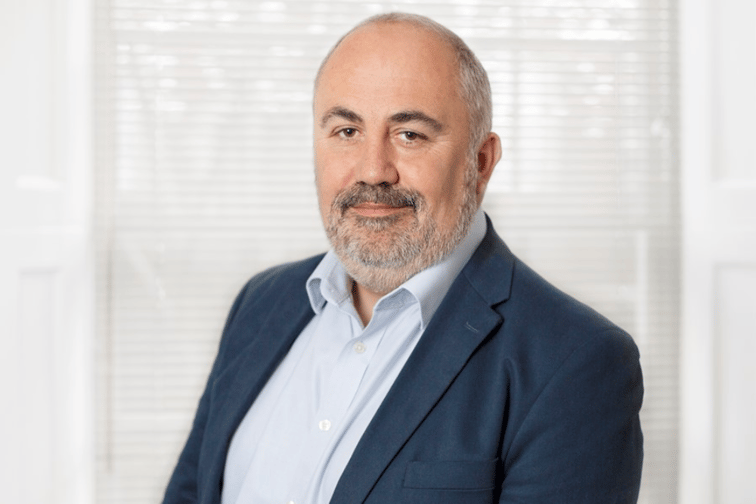

The UK insurance industry received a shot across its bows yesterday when Sabre Insurance Group (Sabre) issued a loud and clear warning regarding the impact of ‘extraordinary inflationary pressures’ facing auto insurers.
In its half-year trading update, London-listed Sabre stated its view that claims inflation currently stands at around 12%, up from approximately 8% in 2021 and 10% in Q1 2022. Speaking with Insurance Business UK, CEO Geoff Carter (pictured) noted overall inflation in the UK is at its highest level in 35 years.
“It has accelerated to that extremely quickly, which has had an almost inevitable impact on claims inflation,” he said. “I’m sure there will be some debates over whether our 12% is right or a bit too gloomy among our other peers but inevitably there will be an increase in claims cost with that level of underlying inflation.”
A critical aspect is that this inflation is occurring across every aspect of the claims supply chain, Carter said. That’s what makes this all the more remarkable – that everything from parts, to labour to replacement cars, is coming under the cosh.
“You have parts inflating, paint costs inflating, labour rates inflating, body shops short of resources – following Brexit which is still impacting as a lot of European workers are no longer here - and you’ve got credit hire,” he said. “One of the big things is parts supply, because if you have an accident and your car goes into a repair shop, there’s a very good chance it could stay there for two or three weeks now, even for a fairly minor accident, because the part availability just isn’t there. And that drives a huge increase in credit hire.
“Injury costs are always inflating, as is the cost of care. The cost of care workers is inflating rapidly, and that’s the one that really impacts our back-year reserves. And then you have used car values which are up 30%. With very little new care supply coming into the UK, used car prices have spiked as a result. It’s unusual that everything has inflated at the same time and it’s a bit of a perfect storm from that perspective.”
A lot of the conversation generated by Sabre’s inflationary outlook has revealed that there was a certain lack of clarity around this issue among some in the market. It simply wasn’t appreciated quite how bad inflation was, he said, but why should insurance be immune from inflationary pressures? Yesterday was, therefore, something of a “penny-dropping moment” in the market.
For Sabre, which has long lived and breathed the mantra of ‘profitability over volume’, meeting this challenge head-on with decisive action has been critical. Following an analysis of the situation, the insurer decided to take a one-off adjustment to its reserves, he said, to put the situation behind it. It has already increased its price by 19% so far this year, and is now pricing new business within its target range going forward.
“We view this very much as a ‘speedbump’ year,” he said. “We’ve had to adjust for inflation, we get it behind us and we move on, we’re predicting pretty strongly back to near normal performance in 2023 and then completely normal from 2024. With inflation at these unprecedented levels, it’s impossible to see how this can’t be a speed bump year for most insurers
“[…] It’s unfortunate that we’ve had to take it on the chin in this way but I think the important thing is to face into it and get back to normal again quickly. Our view is that what you can’t do is kick the can down the road, and hope for the best.”
Sabre is now in a position where having accepted there was a problem and found a workable solution - by increasing its reserves by the appropriate amount and ensuring its pricing at the correct level going forward – it can move on with confidence. Carter highlighted that there’s no shortage of avenues open to the firm, particularly given its moves in the motorcycle and taxi insurance markets.
In its half-year results, Sabre posted a 17.4% year-on-year increase in GWP, up from £78.2 million to £91.8 million for the six months ended June 30, 2022. That’s against its car portfolio being down about 10%, he said, so having launched its taxi and bike offering has had a significant positive impact on the insurer, offering significant robustness to its offering.
“The advantage is that most of this comes through electronic transmission so there’s no real cost,” he said. “We think brokers are very entrepreneurial and have a good future where they have a niche or unique way of working. So, we’re more than happy to carry on supporting and working with brokers and other partners.”
Looking at what the future has to hold, having taken the steps necessary to mitigate the inflationary environment, Sabre is anticipating quite strong growth coming through its core motor book. Also exciting is the opportunities it sees across bike and taxi as it looks to grow those and develop new initiatives in those markets.
“We’re also interested in new deals that look a bit like bike and taxi,” he said. “So, having seen how they work and how successful they can be, we are actively talking to other people about similar sorts of deals. We thought [last year] that this was going to be the start of a really exciting period for us and we still think that, we’ve just got this unfortunate inflation cloud that’s landed on us - but after having dealt with that, we’re ready to move on.”
